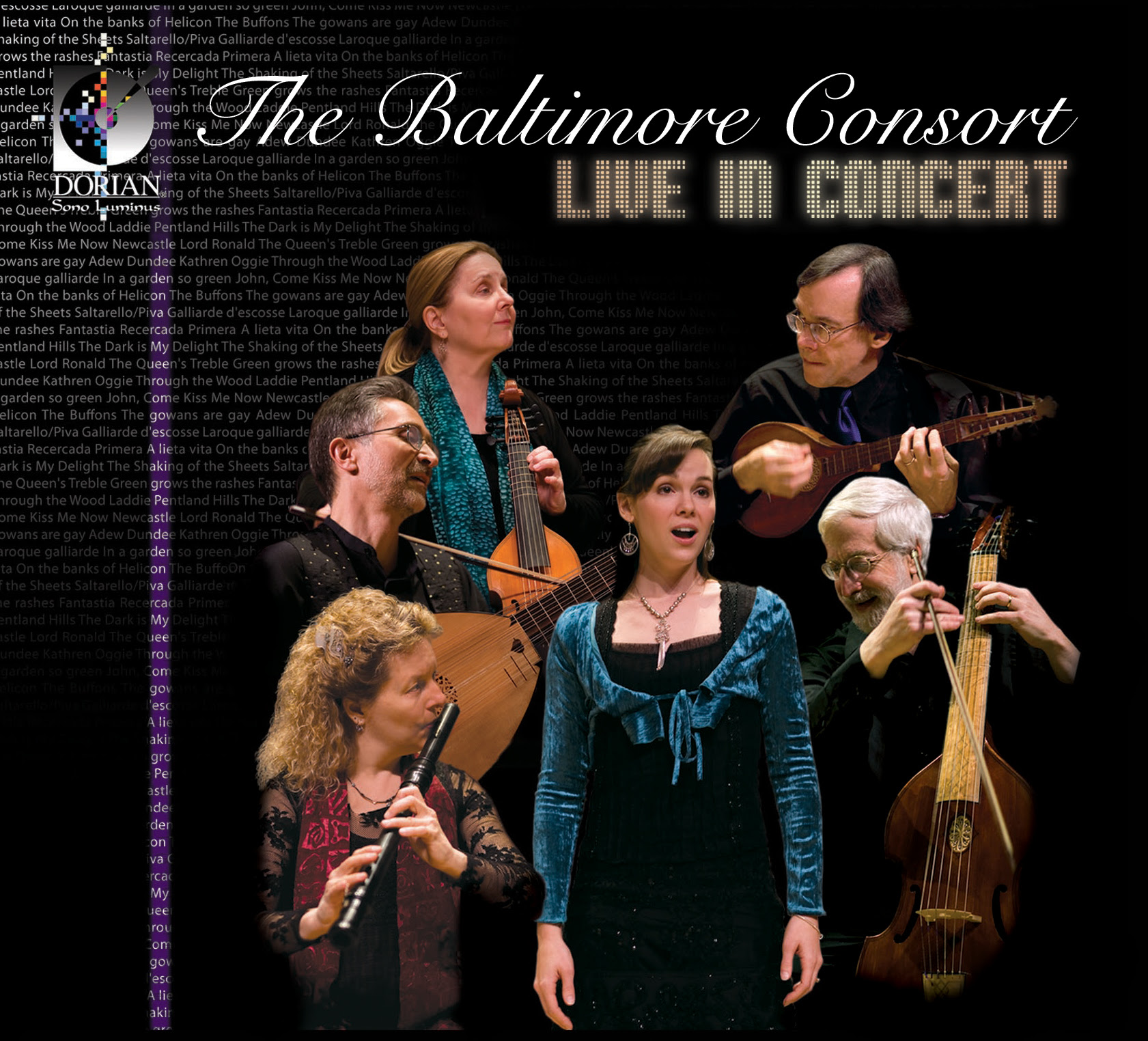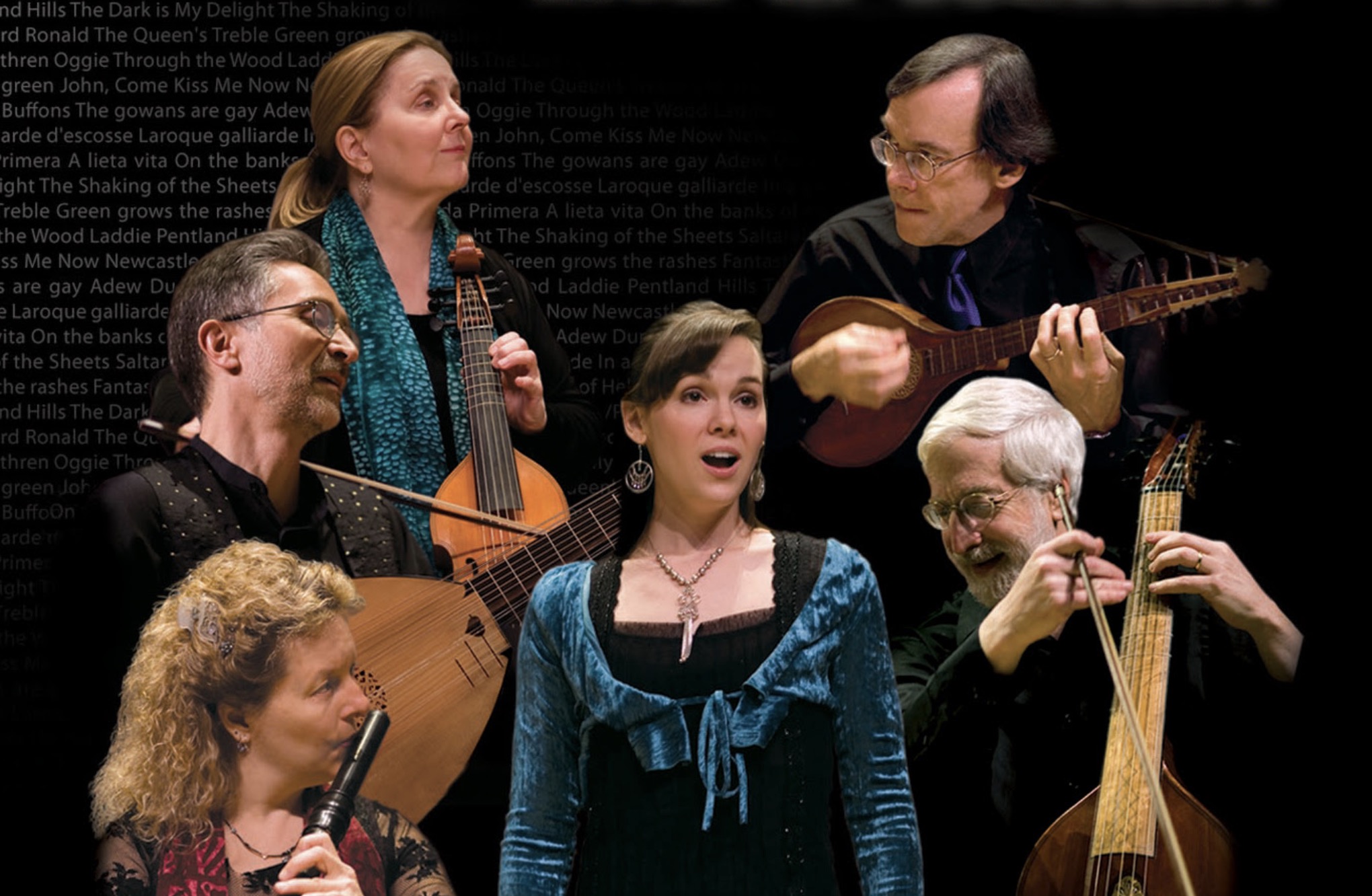
The musicians, time-traveling virtuosos, are as extraordinary as their instruments, from the treble viol, a forerunner to the violin described as “sultry,” or the “ethereal” flute, a recorder, as well as the “noble” lute, “cheerful” cittern and “stately” bass viol, a forerunner to the cello.
Shakespeare did not write musicals as we know them in the Broadway or West End form, closer now to his English roots. But incidental music, most often played and not sung, was very much a part of Elizabethan theater. Unlike in Shakespeare’s time, women are allowed – no, encouraged, to play in this 21st-century consort format – unlike in the Oscar-winning film “Shakespeare in Love,” starring Gwyneth Paltrow as the forbidden female Juliet.
Before the Baltimore Consort embarks on a California tour in March, it will perform at 8 p.m. Feb. 14 at Howard Community College’s Smith Theater in Columbia, 2 p.m. Feb. 15 at the Avalon Theatre in Easton, and 4 p.m. Feb. 16 at The Mainstay in Rock Hall.
The instruments of the period include some made from maple, boxwood, snakewood, sheep’s gut, horse’s tail, crow’s quill, elephant’s tusk, ram’s horn, and shells of tortoises – as if, according to Baltimore Consort’s website, composed from a sorcerer’s potion. Credentials, however, of these musicians who play such period instruments are exemplary.
It’s a sure bet that the Baltimore Consort playlist will not be that of your usual classical concert fare.
***
The good news here is that if you want to take in both the Baltimore Consort and the latest Chesapeake Music Interlude concert, featuring up-and-coming candidates for classical music super-stardom, you can see them both. But only if you see the consort in Columbia on Valentine’s Day or at the Avalon in Easton the day after. The Chesapeake Music recital overlaps with The Mainstay’s Rock Hall consort performance on Feb. 16, itself a fine venue for this event.Violinist Stella Chen won first prize in the 2019 Queen Elisabeth International Violin Competition – named for the Dutch queen, not the late queen of the United Kingdom. And in 2020 Chen won an Avery Fisher Career Grant and the Lincoln Center Emerging Artist Award. Pianist Janice Carissa, who will be accompanying Chen, is a Gilmore Young Artist once-in-four-year award winner and a Salon de Virtuosi prize grantee who debuted with the Philadelphia Orchestra at age 16.
Together they will perform a challenging program starting with Sonata for Solo Violin, Op. 27. No. 5, by Belgian violinist and composer Eugene Ysaye (1858-1931), followed by a modern piece, Adagio for Solo Violin, written by Robert Paterson, born in 1970. Rachmaninoff’s Prelude in G minor, Op. 23, No. 5, Robert Schumann’s Selections From Bunte Blatter, Op. 99 and Bach’s immortal Prelude and Fugue in B-flat minor brings the duo to a well-earned break. After intermission, Cesar Franke’s Sonata in A major for Violin and “Tzigane,” described by its French composer Ravel as a “virtuoso piece in the style of a Hungarian rhapsody,”wraps up the program.
Quite the chamber classical-music duet smorgasbord.|
Baltimore Consort Period-Instrument Concerts
8 p.m. Feb. 14, Howard Community College’s Smith Theater in Columbia, 2 p.m. Feb. 15, Avalon Theatre in Easton, and 4 p.m. Feb. 16 at The Mainstay in Rock Hall. baltimorecosort.com
Chesapeake Music Interlude Chamber Concert
2 p.m. Feb. 16, Ebenezer Theatre, Easton. chesapeakemusic.org
Steve Parks is a retired New York arts critic and editor now living in Easton.



Write a Letter to the Editor on this Article
We encourage readers to offer their point of view on this article by submitting the following form. Editing is sometimes necessary and is done at the discretion of the editorial staff.